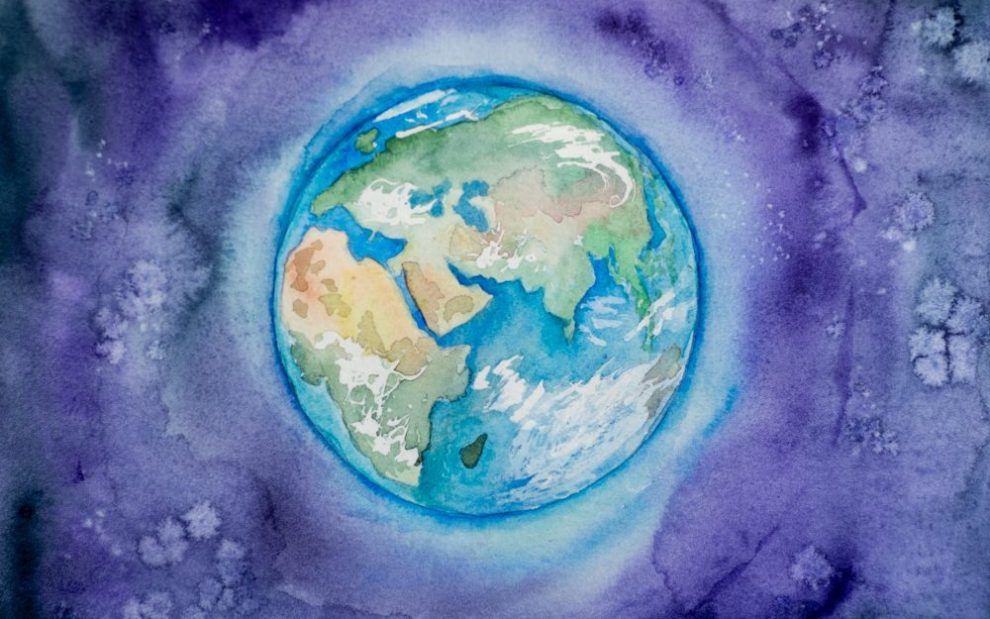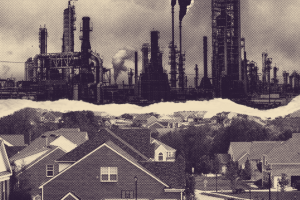Every fall, 40 Days for Life—an annual campaign promoted throughout the church in the United States—advocates for the sanctity of life and an end to abortion. While laudable, the pro-life campaign’s promotion often overshadows the concurrent observance of another campaign: the Season of Creation, a celebration of the natural environment that begins on September 1 and culminates on October 4, the feast of St. Francis.
Unfortunately, even since Pope Francis released his ecological encyclical Laudato Si’ (On Care for Our Common Home) in 2015, there has been little attention within the U.S. church to the natural environment’s intrinsic value. Climate change is a global threat to life that already accounts for millions of deaths due to drought, flooding, famine, and disease and is linked to perinatal and infant mortality. It most severely impacts the world’s most poor and vulnerable—ironically, those who contribute least to the problem.
Despite this dire situation, climate change often takes a back pew to other grave moral issues within the U.S. Catholic Church. In fact, while abortion rates in the United States have been in decline for decades, the opposite is true of climate change’s impact on the innocent.
Given the extent and injustice of climate change, it’s worth asking: Why doesn’t the U.S. church consider such a morally grave issue at least as serious and “preeminent” as abortion? By analogy, I’ve rarely seen the Climate March or Season of Creation promoted by the church with the same energy as abortion-focused pro-life movements. In my own parish, few if any parishioners attend seminars and classes covering the church’s teaching on environmental justice and care for creation.
It’s not surprising to me that many Catholics are not aware of the church’s teachings on the environment: of the 194 archdioceses and dioceses in the United States, only eight have offices dedicated to environmental justice or creation care: Diocese of Stockton, Archdiocese of Indianapolis, Diocese of Evansville, Diocese of Worcester, Diocese of Ogdensburg, Diocese of Rapid City, Diocese of El Paso, and Diocese of Joliet.
Admittedly, the U.S. Conference of Catholic Bishops (USCCB) does collaborate with non-profits that address creation care such as the Laudato Si’ Movement and Catholic Climate Covenant. However, this essentially outsources a critical moral issue that should rightly have its own department and budget within the USCCB and individual dioceses, as do those departments covering families and vocations. At a minimum, the church could utilize the available resources more effectively to better evangelize an issue that is poorly understood and yet increasingly critical for human life and dignity. Given the stakes, the U.S. church should afford stewardship of creation and climate change higher priority.
Unfortunately, the lack of emphasis on creation care in the U.S. church alienates Catholics who are passionate about God’s creation. I suspect the church’s silence on social justice and environmental issues—which will seriously impact future generations—is one reason young Catholics are becoming increasingly disillusioned with the church. Their challenge is not only to advocate for environmental justice, but also to simply feel heard in their own parishes. This should not be the case for any Catholic, and I don’t think it is what Pope Francis had in mind when he wrote Laudato Si’. I honestly don’t believe it’s what the U.S. church desires either.
Given the stakes, the U.S. church should afford stewardship of creation and climate change a higher priority.
Advertisement
To address this moral imperative, Pope Francis, Archbishop of Canterbury Justin Welby, and Orthodox Ecumenical Patriarch Bartholomew issued an extraordinary ecumenical statement in September. In it they urged the one-and-a-half billion Christians under their leadership to “choose life” by caring for the environment and taking decisive action to alleviate climate change. The document reads:
“We call on everyone, whatever their belief or world view, to endeavor to listen to the cry of the earth and of people who are poor, examining their behavior and pledging meaningful sacrifices for the sake of the earth which God has given us. . . . The extreme weather and natural disasters of recent months reveal afresh to us with great force and at great human cost that climate change is not only a future challenge, but an immediate and urgent matter of survival.”
In this letter, they set a global model for an integral ecology that is true to our faith’s priorities.
So, what can we do as disciples of Christ who are called to save the innocent, the poor, and the most vulnerable—those who unjustly suffer and die from climate change? Here are some suggestions:
- Read Laudato Si’. Pope Francis offers an easy read with memorable morsels of spiritual wisdom. The joint statement mentioned above is also succinct yet full of profound insight regarding the urgent need to address climate change.
- Utilize online resources available from organizations such as the Laudato Si’ Movement and Catholic Climate Covenant.
- Form a care for creation ministry at your parish, which can increase ecological awareness and advocate for environmental justice while also facilitating parish sustainability.
- Urge politicians to be truly pro-life by supporting climate legislation.
- Reduce your carbon footprint. As the church leaders urge in their joint statement: “For [young people’s] sake, we must choose to eat, travel, spend, invest, and live differently, thinking not only of immediate interest and gains but also of future benefits. Each of us, individually, must take responsibility for the ways we use our resources.” As Jesus asked of his disciples (Mark 8:34), we are called to sacrifice for love of neighbor and for the common good.
Mitigating climate change will require collective action from everyone: individuals, governments, industry, and religious institutions such as the Catholic Church. If protecting the innocent from harm or death is considered “preeminent,” then alleviating climate change is the most effective means to do so. Humanity’s response to this challenge will have implications for millions of lives: born and unborn, now and in the future.
Christ’s body on Earth—the church—must necessarily be pro-creation. The fate of not only the unborn but of humanity itself may very well depend on it.
Image: Unsplash/Elena Mozhvilo














Add comment